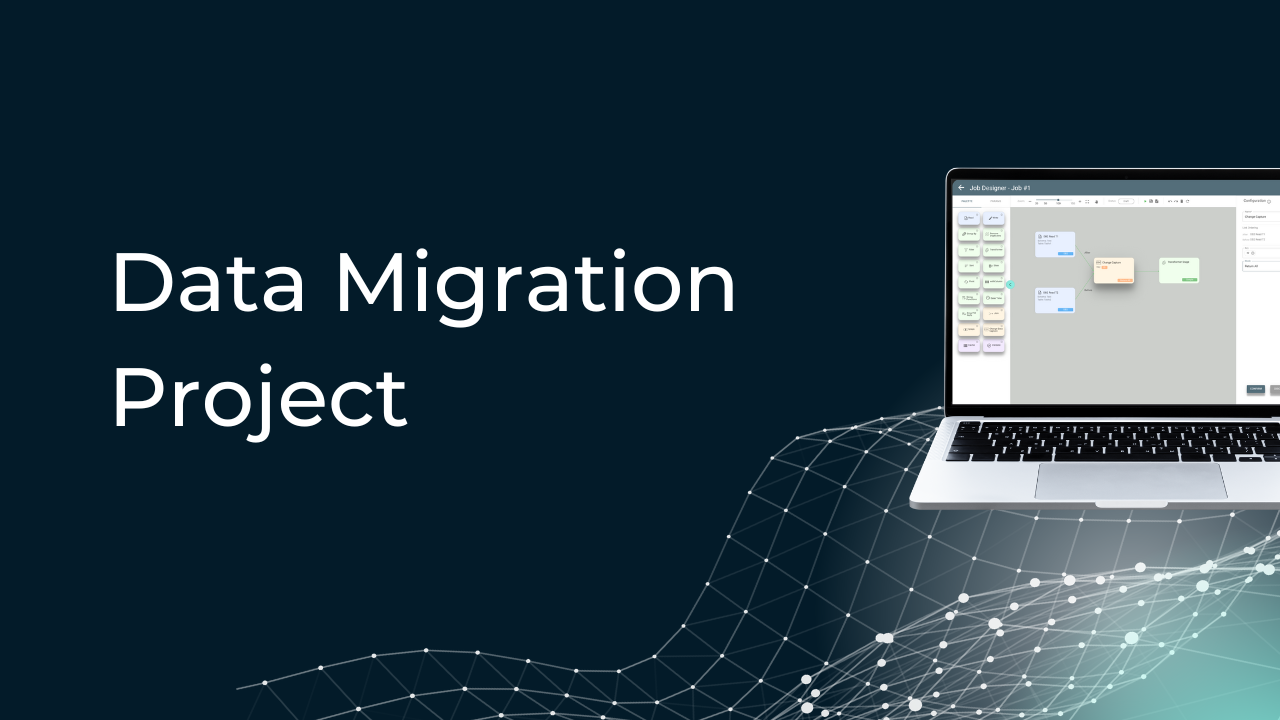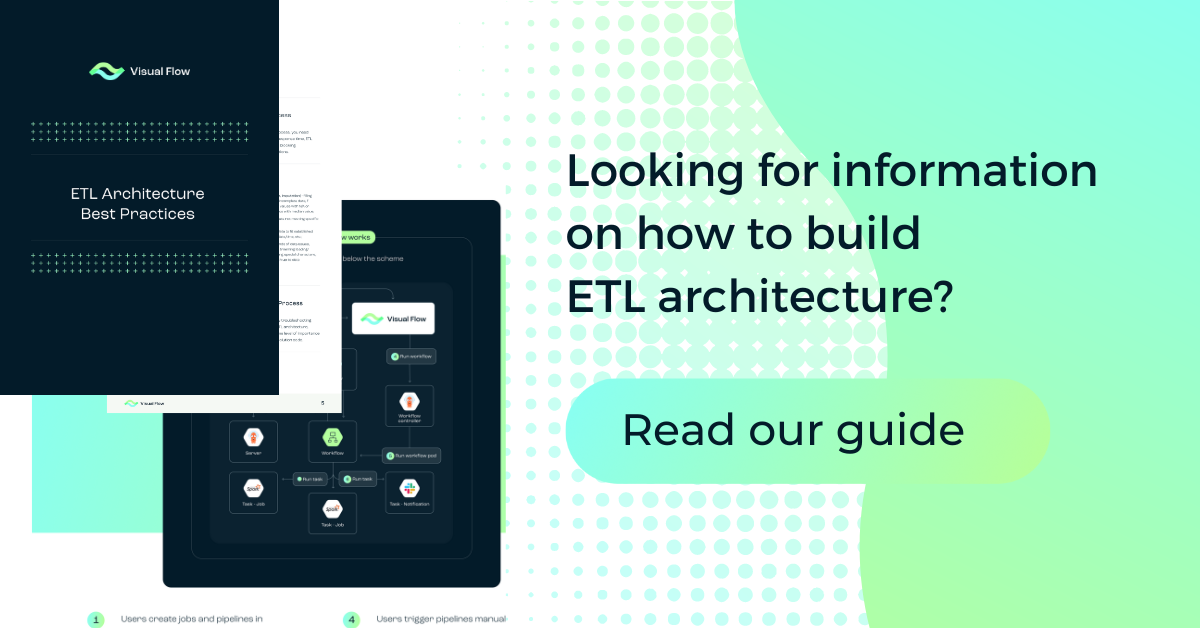
Table of Content:
Table of Content:


The way how Business Intelligence works evolves along the dynamic business environment. With companies aiming towards outsmarting the competition, BI has been getting driven to cloud-based systems. Cloud Business Intelligence is a whole new word in data analytics. Utilizing cloud-based infrastructure, businesses get easier access to data and can process it faster and more accurately leading to more efficient results and more weighted decisions. Without further ado, let’s merge into the waters of Cloud Bi and explore its benefits.
What Is Cloud BI?
Cloud Business Intelligence represents a combination of instruments and technologies used to apply BI systems via the cloud. This is a perfect way for companies to access data virtually from anywhere if only they have an internet connection. Traditional business intelligence is commonly demanding on hardware and software, often requiring massive investments in its operation and maintenance. Cloud BI, in its turn, runs on a subscription basis and a pay-as-you-go pricing policy. Such a model relieves companies from bothering with handling massive infrastructure themselves while still accessing the complete suite of BI tools and services such as data storage, analytical and reporting scripts, etc.
Business owners prefer Cloud BI solutions when they want to avoid logistical difficulties that involve online server maintenance, updating hardware, etc., while getting flexibility and having access to real-time insights, not to mention establishing a more collaborative working environment.
Have literally any questions regarding Cloud BI? Check out the Visual Flow business intelligence services consulting and learn how cloud BI can help you optimize your business decisions.
BI Cloud vs. Traditional BI
Cloud Business Intelligence (BI) systems have substantial differences from traditional on-premise setups. They don’t rely on local servers, instead utilizing adjustable cloud infrastructure managed by third-party providers.
This shift frees up resources, as companies no longer need to invest in hardware and employ full-time IT staff for maintenance. With cloud BI, the cost burden decreases significantly, especially as an organization expands. Moreover, the flexibility to rapidly scale up or down to meet changing business requirements becomes much easier.
In contrast, traditional BI solutions often limit user accessibility due to physical location constraints. Users must be directly connected to the company network or on-site to access data and analytics tools. In stark contrast, cloud BI enables real-time data insights from anywhere via an internet connection, providing unparalleled mobility and convenience.
While migrating from legacy systems to cloud-based BI can pose challenges, expert services like ETL migration consulting streamline the process.
Benefits of Cloud BI for Your Business
Adopting business intelligence cloud services brings many benefits, revolutionizing how companies handle and utilize data.
- Flexibility. A key advantage of cloud BI is its built-in adjustable functionality. As your company expands, so too do your data analytics needs. Cloud platforms provide the flexibility to adjust resources up or down based on demand, without requiring investment in extra hardware or software licenses.
- Cost-efficiency. Traditional BI often demands substantial upfront infrastructure investments. With cloud-based BI, you only pay for what you use, enabling predictable and manageable expenses.
- Promptly timing. Cloud BI makes real-time analytics possible. Businesses can access live data, which is vital for decision-making in rapidly evolving industries.
- Teamwork. Cloud BI systems allow team members from various departments and locations to easily collaborate on reports and share insights. This fosters a culture of data-driven decision-making throughout the organization.
- IT relief. Since infrastructure is managed by external providers, the internal IT staff can concentrate on more strategic initiatives rather than maintaining servers and databases.
Explore these solutions deeper with data engineering and consulting services. See for yourself how integrating cloud BI will smoothly align with your business system!
Cloud BI Integration Capabilities
Cloud-based BI involves a number of third-party instruments and services and this integration is not to be overlooked if you need to unify the data and make it equally accessible across all departments and teams. A unified data environment gives the possibility to consolidate information and centralize it from various sources for better access and more accurate insights. Usually, cloud BI services establish a connection with CRMs, ERPs, financial systems, marketing tools, etc., through built-in APIs and ETL tools. ETL (Extract, Transform, Load) instruments serve for migrating, processing, and cleaning data.
Cloud Business Intelligence Solutions
The enormous variety of different cloud BI solutions can be overwhelming but luckily we’ve gathered a combination of steps to take when selecting the best option for your business. Let’s run through these steps:
Define your Business Needs
The first step should always be identifying issues that you aim to cover in your business with the help of Cloud-based BI. These goals can be fixing efficiency, getting customer insights, forecasting trends, etc. This is the ground question that will define your long-term game within the Cloud BI functionality.
Estimate Integration Capabilities
You want your cloud business analytics platform to integrate with your existing instrumentary like CRM, ERP, etc., smoothly and with the least adjustments. Make sure that the BI tool you’re considering is compatible with your systems and that all your teams are prepared to use it fully. Sometimes it’s easier to prepare than to fix, and BI follows this rule clearly.
One more thing to pay attention to is the availability of APIs or connectors for your software within the BI tool to avoid any disruptions during the migration process.
Ensure Adjustability
Your data will surely keep growing along your business, so you need a flexible BI instrument that is able to handle large datasets and allow more users without performance drops or complete breakdowns. After all, the data fluctuations are not always gradual. Sometimes they are abrupt, dictated by seasonal changes or events that create growth spikes, so a good BI tool is always ready to adjust.
Check Customization and User-friendliness
Not only does each company have its way of handling business-related operations, but even every department within the same company, that’s why each team must be able to adjust the functionality such as dashboards, reports, etc., up to their comfort.
An unclear interface can destroy the credibility even of a powerful instrument so an intuitive GUI is a must. Pay attention to this aspect to allow even non-technically proficient workers to access the data manipulations easily.
Ensure Security
Operations with sensitive data require safety. That’s why it is vital to check if the BI provider offers security measures like encryption, access controls, security audits, secure storage protocols, etc. If your business revolves around personal customer information or financial data, this step is especially a must-do.
If your business works within a regulated industry, your BI tool must also follow the security standards, among which are HIPAA, GDPR, etc.
Request Demonstrations and Trials
Before making the choice and committing to a single service, a demonstration would be a nice preemptive measure. Request a trial to check the usability and performance of the instrument, and let all the departments or even stakeholders that are going to be involved give it a test as well. A trustworthy self-assured provider will always be ready to provide such a demonstration before expecting your subscription.
Compare Pricing Models
Each cloud business intelligence service has its own price policy, some require subscriptions, some offer their services on the pay-as-you-go pricing model, etc. Pay attention to this aspect to fit within your own budget regulations or data usage expectations. A subscription-based system is always good for a business that has established long-term needs while PAYG models are preferable for those whose needs are less predicted.
Make sure to calculate the total cost of using the service, including fees for advanced functionality, should there be any. Typically, you need a solution that goes well with both your cost and functionality expectations or at least has a good balance between these values.
Analyzing Your Data in a Whole New Way
Cloud-based business intelligence unlocks entirely new ways of analyzing data, unseen with traditional BI services. More accurate trend reading, deeper customer behavior understanding, and insights into operational efficiency are accessible more than before thanks to advanced analytical capabilities, real-time dashboards, detailed reports, and overall usage convenience offered with cloud tools.
To tell more, the cloud-based nature opens the doors to teams not only from different departments but even geographies, allowing them to have equally easy access to real-time insights. Such agility leads to timely reacting to market fluctuations, customer behavior, performance metrics, etc., and allows the company to outrun the competitors who don’t utilize these technologies.
In conclusion, cloud business intelligence offers a revolutionary approach to data analytics. From improved scalability and reduced IT overhead to real-time insights and enhanced collaboration, businesses of all sizes stand to benefit from adopting cloud BI solutions. By selecting the right platform, integrating it effectively, and leveraging its capabilities, organizations can transform their data into a powerful tool for growth and innovation.
Interested in implementing Cloud based BI within your Business? Visit Visual Flow for expert guidance on optimizing cloud BI for your organization.








Contact us






















































